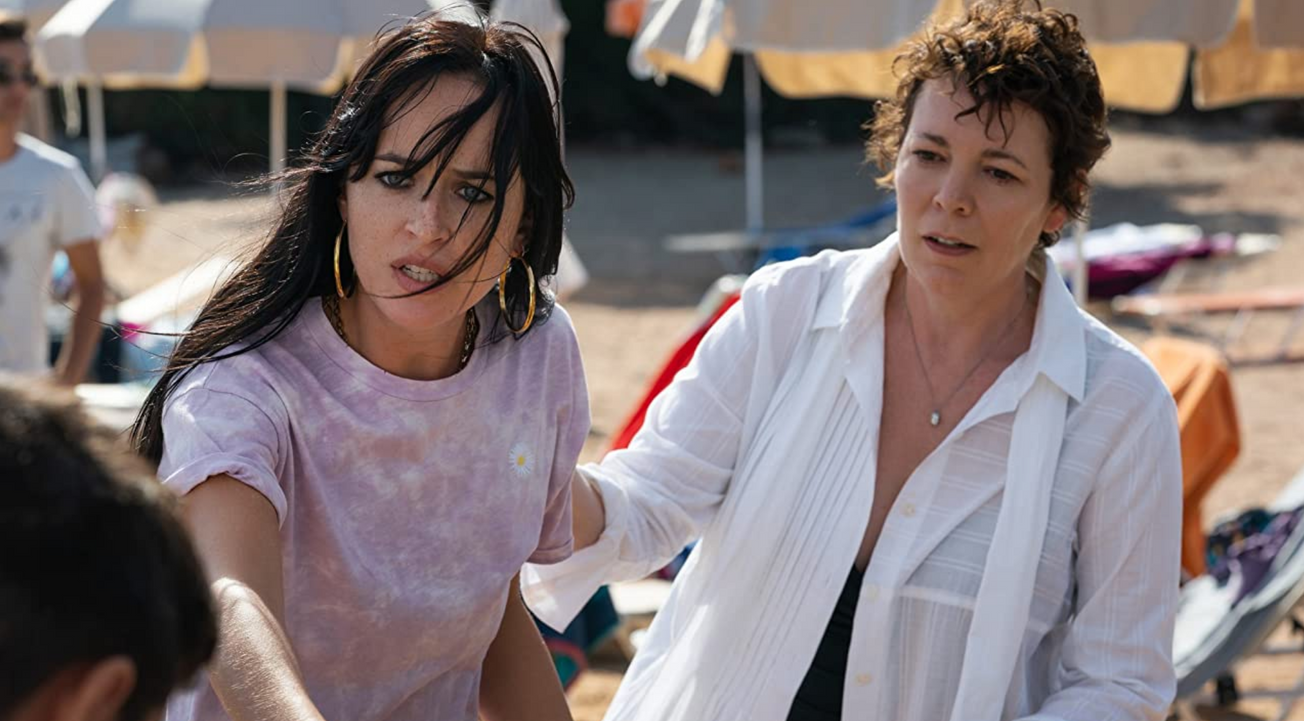By Chezelle Bingham, Film & Television Subeditor
In her directorial debut, Maggie Gyllenhaal, who you may have known previously as Rachel from The Dark Knight (2008), adapts Elena Ferrante’s novel of the same name to the big screen to outstanding results.
The Lost Daughter follows comparative literature professor Leda (Olivia Colman) on her lone holiday to Greece, where she becomes increasingly obsessed with watching exhausted young mother Nina (Dakota Johnson), a woman whose presence forces Leda to confront her past demons, specifically her relationship with her own daughters Bianca (Robyn Elwell) and Martha (Ellie Blake).
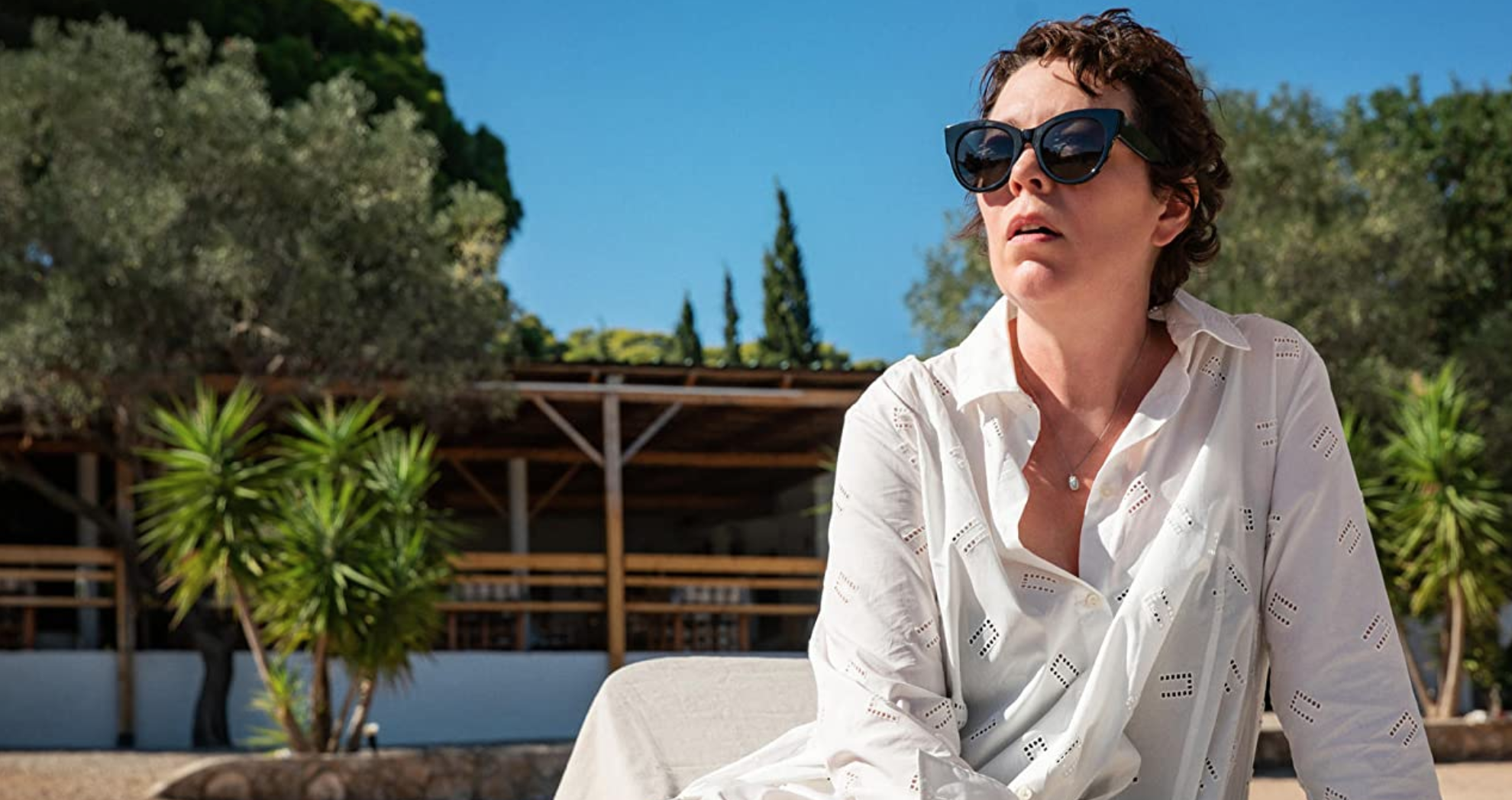
This complex family relationship is confessed to us through flashbacks of a young Leda, played by the outstanding Jessie Buckley. Buckley’s performance reveals Leda’s past as an ambitious, career-driven young mother who is occasionally unlikeable as she attempts to seize the day while the confines of domestic life hold her down, and Buckley captures her character perfectly. Buckley is intense in the role: especially when she raises her voice at her daughter Bianca for pulling her hair or disobeying her, and when she interacts with her husband Joe (Jack Farthing).
The young Leda’s flashbacks parallel to her present day, where the appearance of the struggling Nina and her difficult daughter remind her of the past that she escaped, and it is through Nina’s daughter Elena’s toy doll, one that reminds Leda of a certain doll from her youth, that the film finds its satellite.
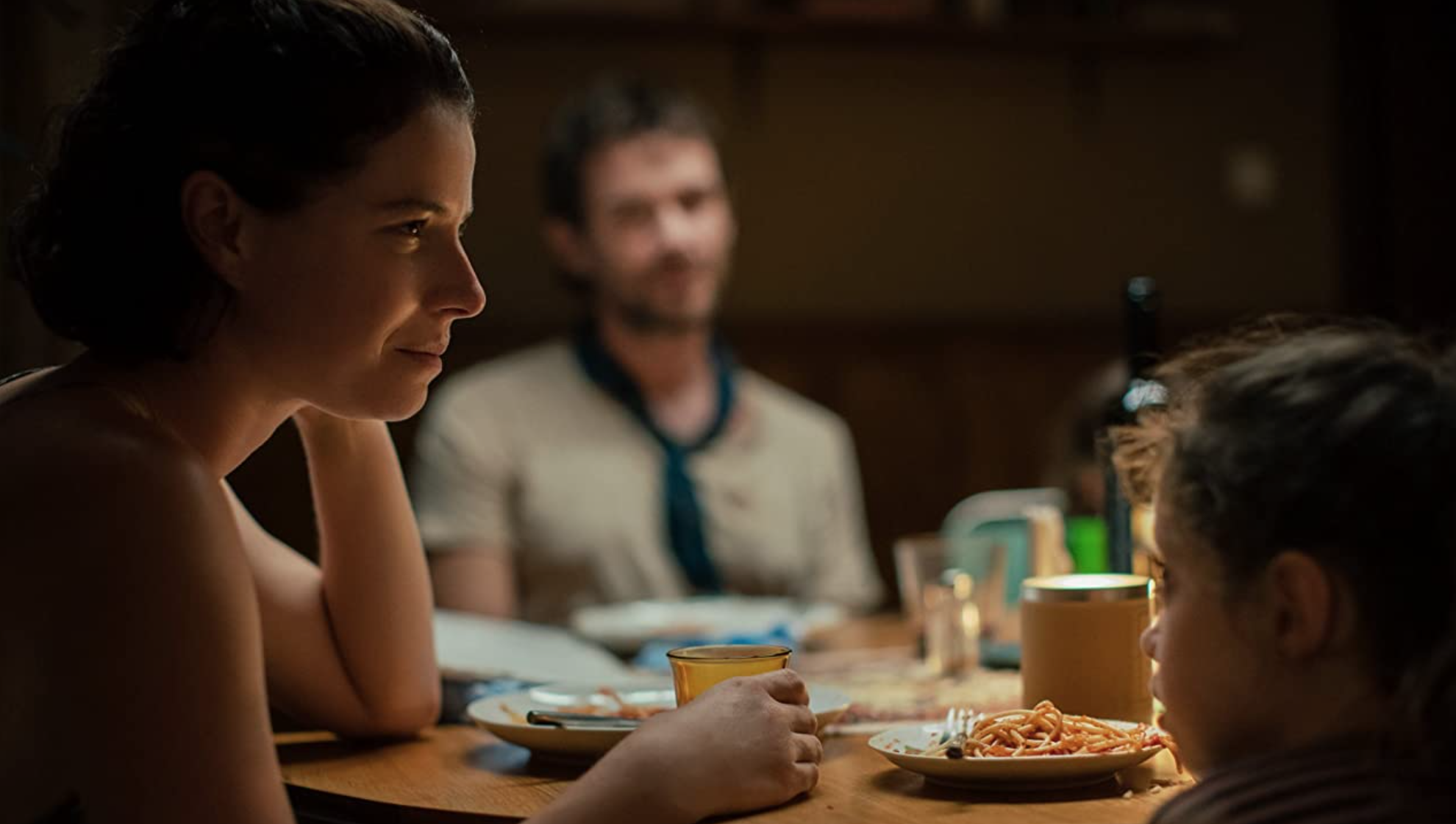
Though all the performances in the movie are impressive, Colman and Johnson shine the most effectively: their chemistry is undeniable, and with Colman already being nominated for both a Golden Globe and Critics Choice Award for her performance, I would be surprised if the Academy doesn’t nominate at least one of them for an Oscar this year.
A specific scene that sticks out is when Nina and Leda interact for the first time after Leda assists with a family struggle. Nina tells Leda that she “likes her bathing suit”. Though such a line sounds so simple, there is something incredibly touching in her expression. In fact, Johnson and Gyllenhaal have both asserted that what Nina actually means in this scene is “I love you.”
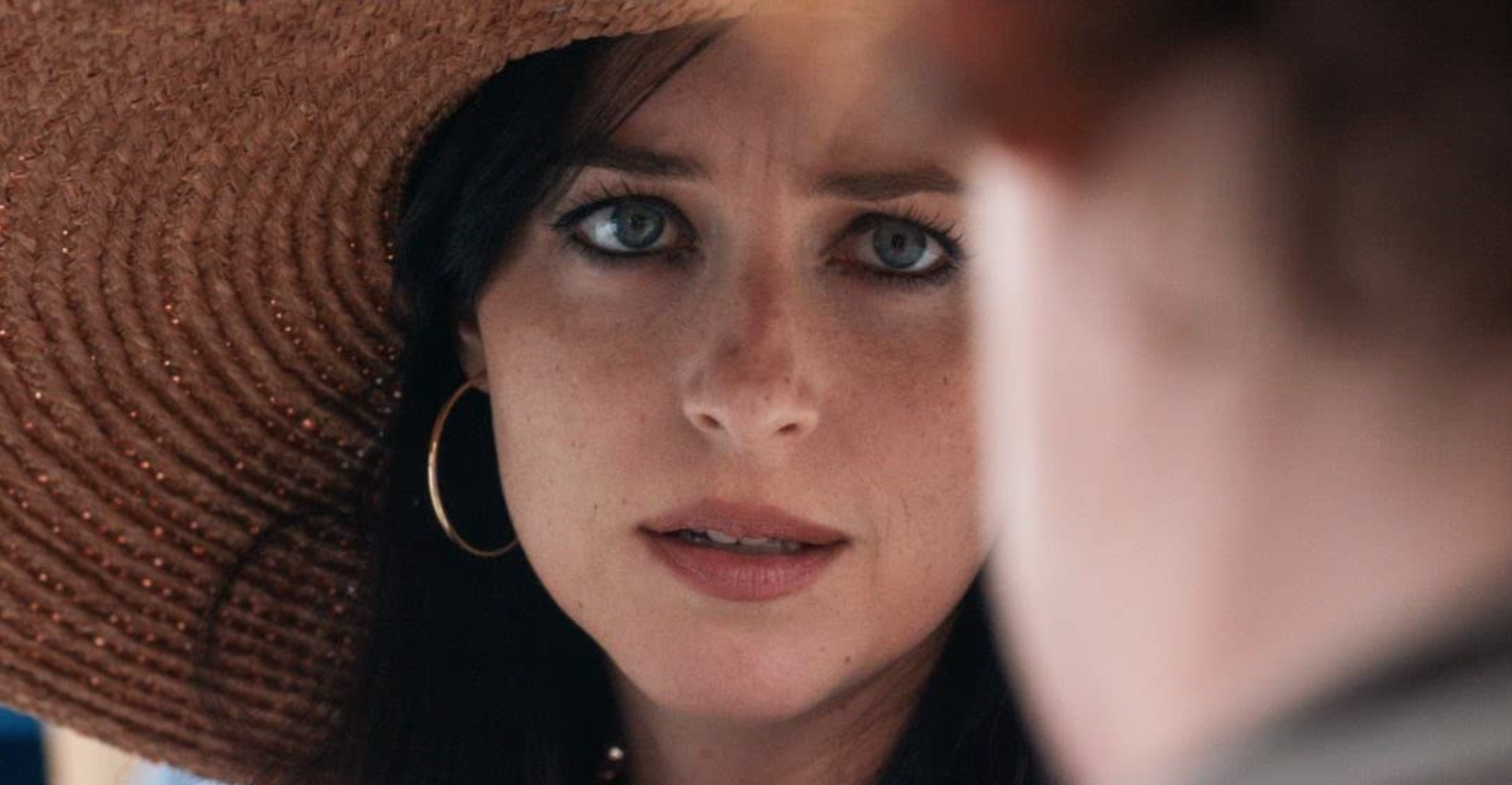
Visually, The Lost Daughter is beautiful, with Helene Louvart’s cinematography providing a certain intimacy to the tone of the film and the serene colour scheme that captures the stunning sea and sand of Greece only adding to this. Moreover, close ups of our leads help to reveal their humanity and exaggerate the poignancy of the connection formed between the two that is at times maternal and at other times almost romantic.
Of course, no film is perfect, and The Lost Daughter doesn’t come without its flaws. There are moments when the film drags (personally I found all of the scenes with Ed Harris’ character Lyle a little yawn-inducing), and the rather violent characterisation of Nina’s Greek-American family is a little problematic, but these moments do not reduce the overall quality of the movie.
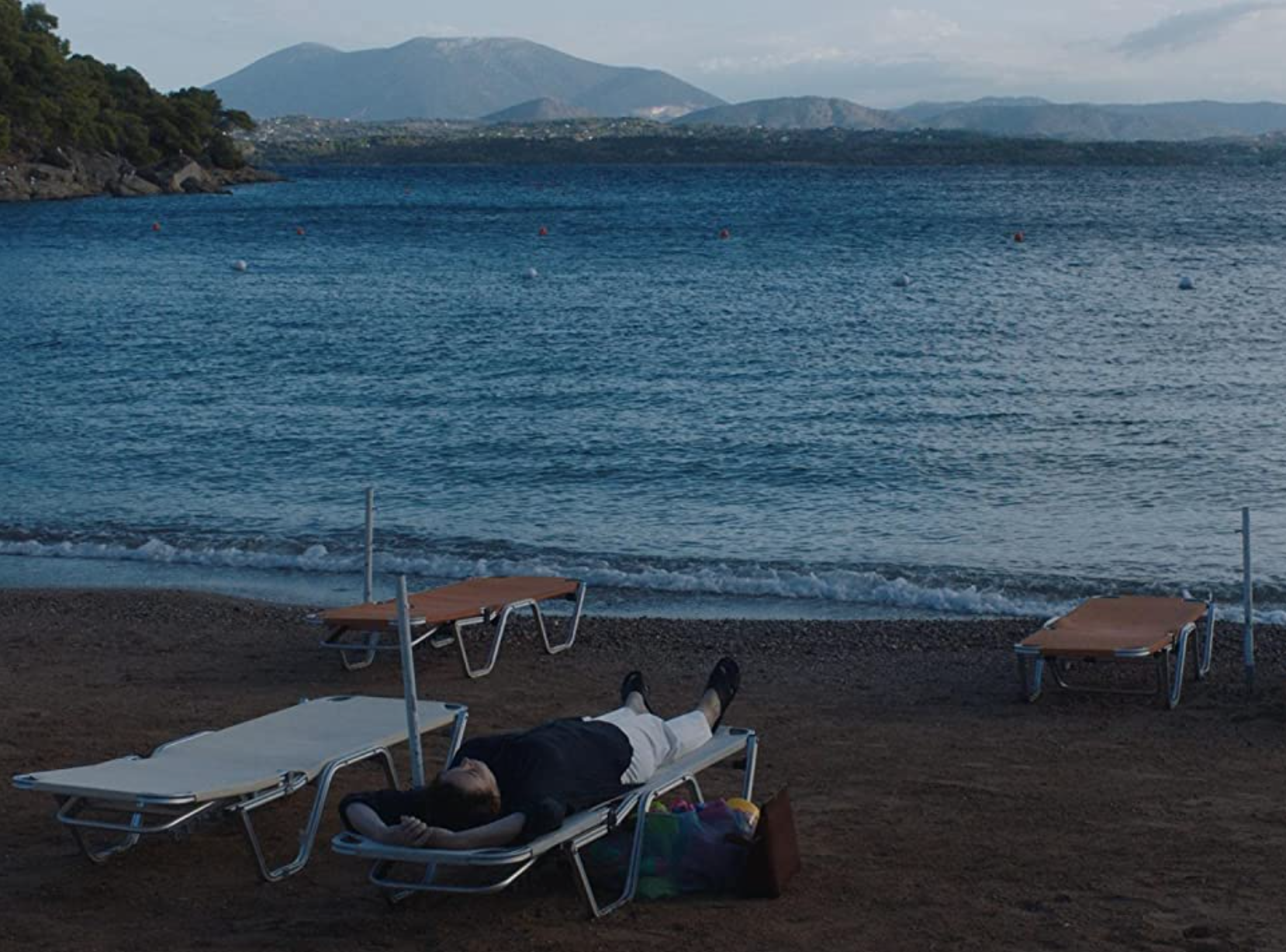
Gyllenhaal’s woman-dominated film provides us with thoroughly composed female characters that help express the problems of the mother-daughter relationship in a way that uncovers the taboo of why some women don’t love being mothers.
Though perhaps not the most riveting film to have hit Netflix in 2021, The Lost Daughter is ultimately a more than interesting depiction of the struggles and guilt that come with motherhood. If you’re looking for fast-paced action or mind-numbing comedy then The Lost Daughter isn’t for you, but if you favour compelling, emotional drama in combination with stellar performances, make sure to stream The Lost Daughter on Netflix as soon as possible.
Featured Image: IMDB
Did you find feeling in The Lost Daughter?

